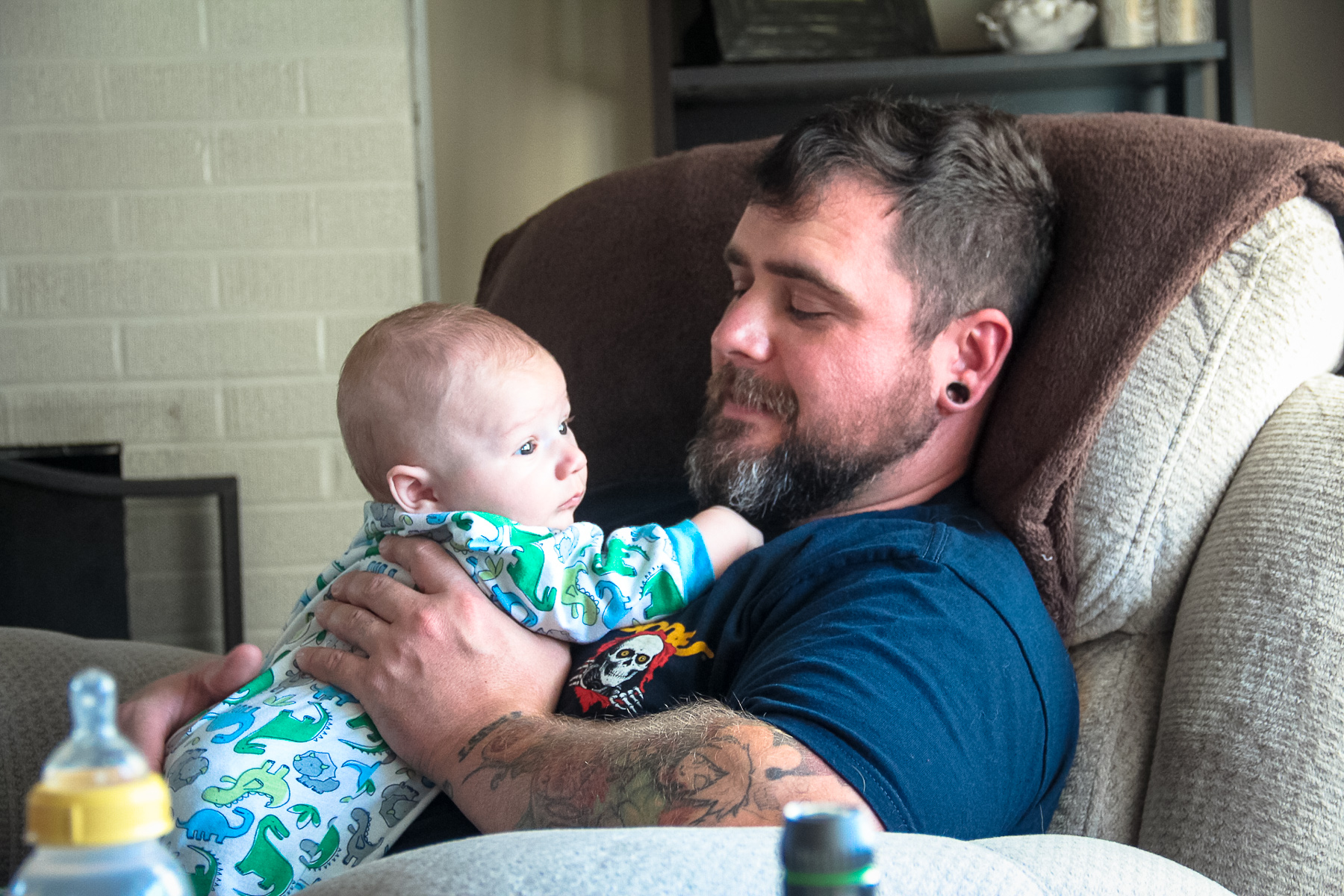All over the country, coal miners will be watching President-elect Donald Trump to see if he keeps his promises. In West Virginia last year, he told a crowd, “We’re going to put the miners back to work—we’re going to put the miners back to work.”
That message helped Trump win over voters in Pennsylvania’s coal country. In Greene County, a third of the jobs in coal mining—the county’s largest industry—have disappeared over the past four years. Donald Trump, who has promised to slash environmental regulations on coal, won the county by 40 percent—eight years after Barack Obama essentially tied John McCain there.
LISTEN: “What Coal Miners Expect From Trump”
Dave Hathaway of Waynesburg says he will be watching Trump. After the coal mine he worked in closed a year ago, he spent much of 2016 looking for work. The search got more urgent when his son Deacon was born in August. And on Election Day, Hathaway made a choice he hopes will help his long-term job prospects.
“I voted for Trump—I mean, a coal miner would be stupid not to,” Hathaway says.
Hathaway recently found a job at a nearby mine. He thinks Trump’s election means he’ll have a better shot at keeping his new job, but he didn’t like a lot of things Trump said during the campaign.
“He is a whacko—he’s never going to stop being a whacko,” Hathaway says. “But I mean, the things he did say—the good stuff—was good for the coal mining community. But we’ll see what happens.”
Tom Crooks, vice president at R.G. Johnson, a construction firm that builds mine shafts, witnessed the decline of Greene County’s coal industry firsthand.
“Two years ago we had 145 employees,” Crooks says. “Right now, we have 22.”
Crooks doesn’t use the phrase “war on coal,” but he does think federal regulations mounted by the Environmental Protection Agency under President Obama have weighed down his industry. One example is the EPA’s Clean Power Plan. That rule, which Trump has pledged to eliminate, limits the amount of carbon dioxide from coal-fired power plants. Instead, Crooks wants to see more government research into making coal as clean as possible.
“What’s happened over the last eight years is the smart people stopped working on coal—in part because of the way the federal government and the state governments looked at us,” Crooks says. “We just want them to start looking to coal as an option.”
“He is a whacko—he’s never going to stop being a whacko. But I mean, the things he did say—the good stuff—was good for the coal mining community. But we’ll see what happens.”
Trump’s promise of bringing the coal industry back has attracted interest from at least one Democratic lawmaker in this corner of Pennsylvania. State representative Pam Snyder, who represents Greene County, invited the President-elect to visit her district to tell coal miners his specific plans to help them. She has yet to hear back.
Snyder won’t say who she voted for. But she does think Trump can help the industry by rolling back environmental regulations.
“I care deeply about the environment,” she says. “But there’s a social environment too I have to care deeply about. And when a big chunk of my constituency is thrown into the unemployment lines, what about that social environment?”
Snyder acknowledges what many here know—namely, there’s only so much Donald Trump can do to bring back coal. Probably the biggest factor in coal’s decline has been the low price of natural gas—some of it produced in gas wells right here in Greene County.
Others say the federal government should help coal country plan for its future. Blair Zimmerman is a Democratic Greene County commissioner and former coal miner. He supported Hillary Clinton, but he wished the Obama administration had spent more time helping coal-dependent communities transition their economies.
“No one’s knocking on my door and saying, ‘Hey, what can we do to bring back manufacturing?’” he says. “Coal miners can do anything; they can transition to anything.”
Instead of a return to what once was, Zimmerman wants Trump to help his community prepare for what comes next.

